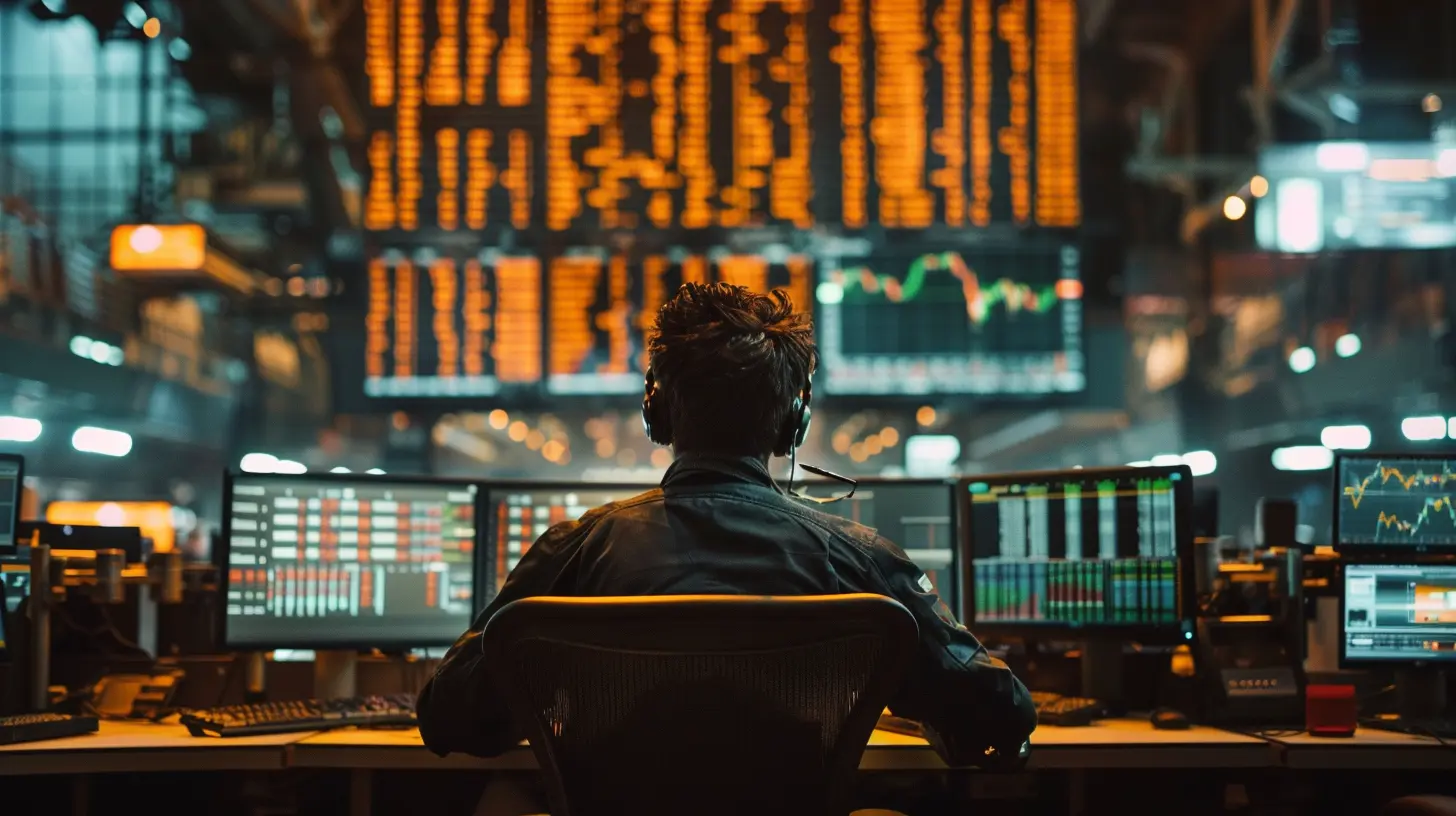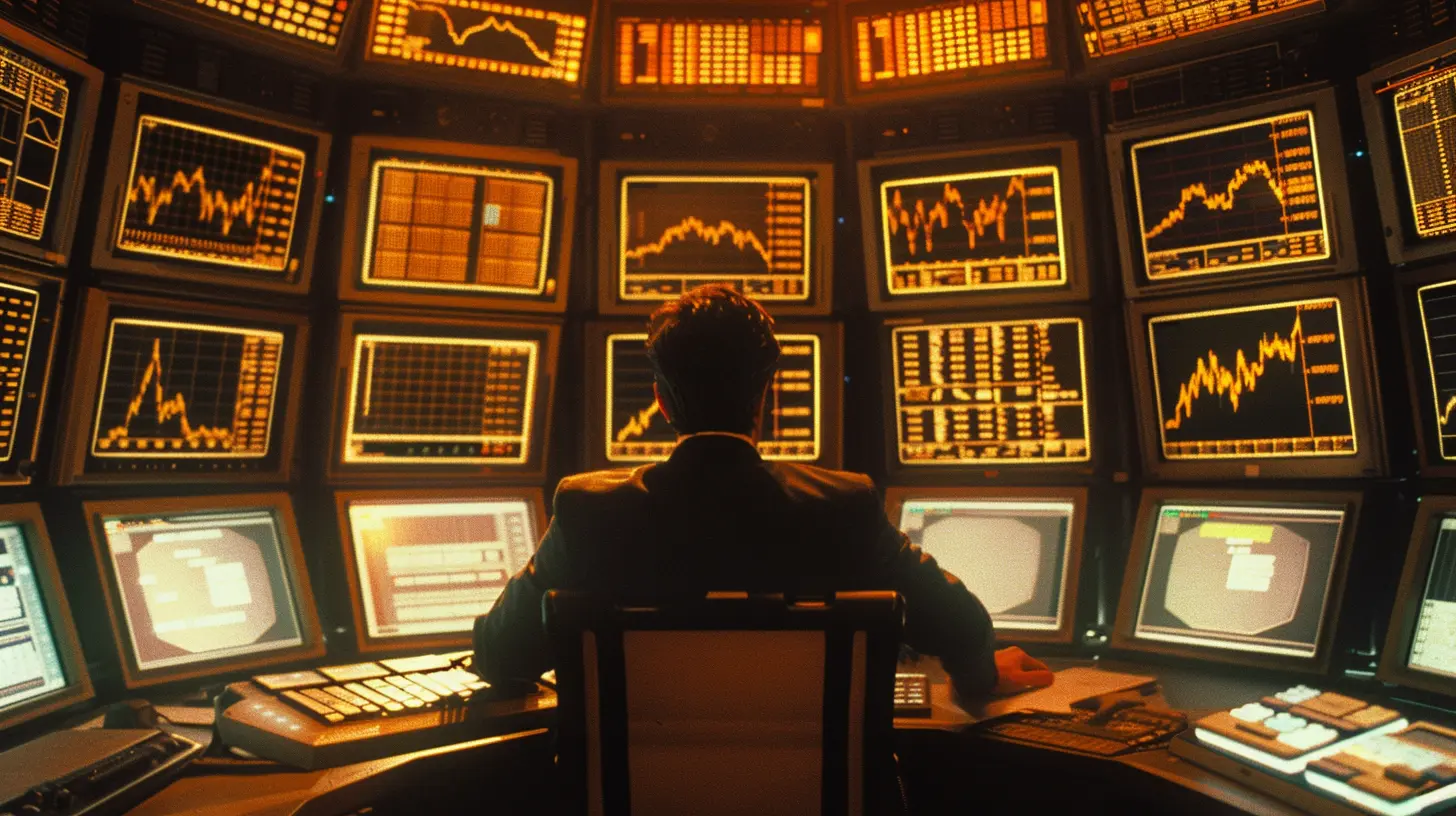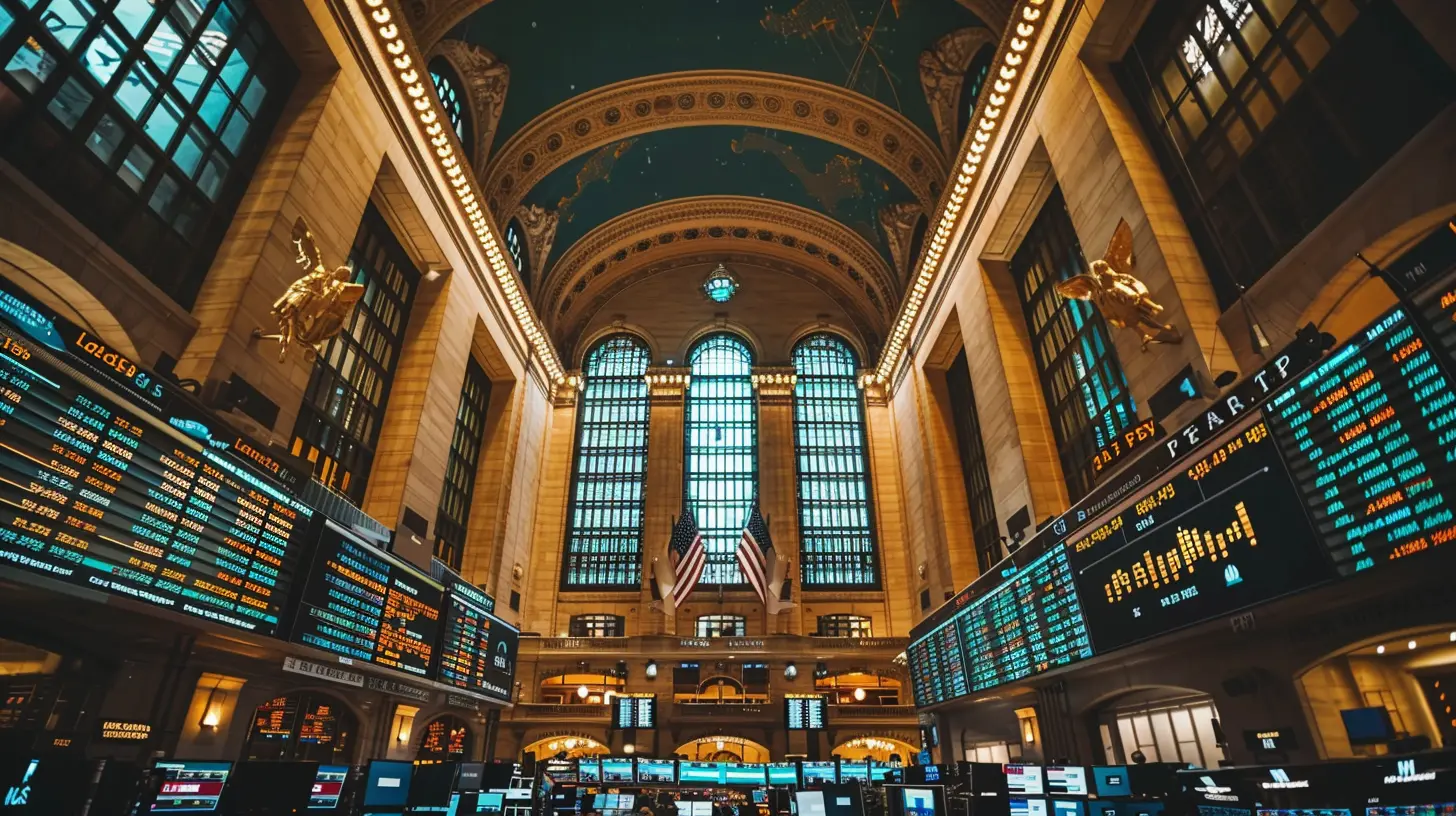The Role of Technology in the Future of Stock Trading
22 June 2025
If there's one thing we can all agree on, it's this — technology is changing everything. From how we shop to how we socialize, and yes, how we invest. Stock trading has come a long way from the chaos-filled trading floors with shouting brokers and waving papers. Today, it’s all about algorithms, apps, AI, and data — and there’s no going back.
But what does this tech-fueled transformation mean for you, me, and millions of aspiring traders? Let’s dive into the fascinating world where Wall Street meets Silicon Valley and see how technology is shaping the future of stock trading.
The Digital Evolution of Trading: A Quick Look Back
Before we zoom into the future, it's worth glancing in the rearview mirror. Picture this — not so long ago, if you wanted to buy stocks, you had to call your broker, place an order, then...wait. It was a system full of delays, fees, and human errors.Now? You pull out your phone, tap a few times, and boom — you're a trader.
This shift from manual to digital didn't happen overnight. It was the result of years of innovation: the rise of the internet, the birth of online brokerages, and ultimately, the rise of fintech.
So, How Exactly Is Technology Changing Stock Trading?
Let’s break down the key ways tech is shaking up the trading game.1. Algorithms Are the New Traders
Ever heard of algorithmic trading (or algo-trading)? It’s not just a fancy buzzword. These are computer programs that execute trades at lightning speed based on pre-set conditions — like price, timing, volume, or even market sentiment.In a nutshell, algorithms can trade faster and more accurately than any human ever could.
What does this mean for us regular folks? Well, the market becomes more efficient. Trades happen quicker, spreads get tighter, and patterns become harder to exploit… which levels the playing field, at least somewhat.
But there’s a flip side. Because these algorithms react to market changes in milliseconds, they can also cause mini market meltdowns — ever heard of a “flash crash”? That’s algorithms gone wild.
2. Artificial Intelligence Is Learning the Market
Now, let’s talk about AI — the tech superstar of the 21st century.AI in trading is like having a super-smart assistant who never sleeps and constantly crunches numbers. It analyzes oceans of data — company reports, social media trends, global news, stock charts — and tries to predict what might happen next.
Can AI perfectly predict the market? Not yet. Probably never. But it gives you tools to make more informed decisions.
And here’s the kicker: AI is getting better every day. The more data it processes, the smarter it gets. Kind of like a baby that turns into Einstein — but for trading.
3. Mobile Trading Apps Bring Wall Street to Your Pocket
Remember when you had to sit at a desk and stare at a computer screen all day just to track your investments? That’s ancient history.Today, armed with apps like Robinhood, E*TRADE, or Webull, you can buy Apple shares while waiting in line for your actual Apple iPhone. Convenience? Check. Control? Double-check.
These mobile apps are doing more than just putting trading at your fingertips. They’re gamifying investing — making it feel accessible, even fun. But hey, here’s a word of caution: just because it’s easy doesn’t mean it’s simple. Always do your homework before hitting “buy.”
4. Big Data Is Giving Traders an “Information Edge”
We live in the age of Big Data — and it’s a game-changer for trading.Think about this: what if you could scan every earnings report, Twitter post, Reddit thread, and financial news article in seconds? That’s what Big Data analytics makes possible.
Large hedge funds and institutional investors have been using this edge for years, but now, thanks to advancements in cloud computing and AI, individual investors are finally catching up.
Using tools that interpret sentiment analysis or machine learning models, even casual traders can now get insights that used to be exclusive to the big guys in suits.
The Human Touch: Still Important, Or a Thing of the Past?
With all this talk about AI and algorithms, you might be wondering — are humans even needed anymore?Absolutely! Technology is powerful, but it’s not infallible. The markets are influenced by emotion, psychology, and unpredictable events — things machines aren’t great at understanding (at least, not yet).
Human intuition, critical thinking, and experience still matter. Use tech to inform your decisions, not to replace them.
Think of it like driving a race car. The car (technology) is built for speed, but without a skilled driver (you), it’s not going anywhere fast.
The Rise of Social Trading Platforms
Let’s be honest — investing can be intimidating, especially if you’re new to the game. That’s where social trading comes in.Platforms like eToro, ZuluTrade, and Public allow users to follow and even copy the trades of successful investors.
Think of it like a group project in school, but you get to pick your smartest classmate and copy their work legally. Pretty awesome, right?
Social trading introduces a layer of community and transparency to the often-isolated world of investing. It's financial education with a social twist — and yes, there’s even a chat!
Blockchain and the Future of Stock Exchanges
Here’s a big one: blockchain.Blockchain might be most famous for powering Bitcoin and other cryptocurrencies, but its impact on stock trading could be massive.
Traditional stock trades can take two to three days to settle. That’s a lot of waiting in a world used to instant gratification. Enter blockchain-based trading systems, which could make trade settlement almost instant.
Faster settlements mean less risk, fewer fees, and better transparency. Plus, blockchain could cut out middlemen — making the whole ecosystem leaner and more efficient.
Some stock exchanges around the world are already experimenting with blockchain. It’s not mainstream... yet. But the seeds are definitely planted.
Robo-Advisors: Your Personal Investment Coach Made of Code
Don’t have the time or confidence to create your own portfolio? That’s where robo-advisors come in.These automated platforms take your preferences — like risk tolerance, investment goals, and time horizon — and build a personalized investment strategy for you.
Best part? They’re affordable, available 24/7, and emotion-free (no panic selling here!). Services like Betterment and Wealthfront are making investing more accessible to everyone, not just the wealthy elite.
It’s like having a smart financial planner in your pocket — minus the hourly fee.
Education in the Digital Age: Learn Anytime, Anywhere
The democratization of trading goes hand in hand with the explosion of online learning.Thanks to YouTube, webinars, online courses, and even TikTok (yes, really), anyone can learn about trading no matter where they are. And with simulation platforms and paper trading apps, you don’t even have to risk real money to practice.
The barrier to entry? Lower than ever. The key now is curiosity and consistency.
Is There a Downside to All This Tech?
Let’s be real. Technology isn’t a magic wand. There are some things to watch out for:- Over-reliance on automation: If you blindly follow algorithms without understanding them, you’re giving up control.
- Data overload: Information is great — until it becomes overwhelming.
- Security risks: Cyberattacks and data breaches are a growing threat.
- Market volatility: Rapid trades by algorithms can make markets more volatile and unpredictable.
But here’s the trick — awareness is power. If you know the risks, you’re already ahead of the game.
Where Do We Go From Here?
Look, the future is exciting. We’re standing at the edge of a new era in stock trading — one fueled by AI, driven by data, and made accessible by mobile apps and platforms.The key for all of us? Stay curious. Keep learning. Adapt to the tools and trends, but don’t forget the fundamentals of smart investing — diversify, think long-term, and don’t let FOMO drive your decisions.
Technology is your co-pilot, not your autopilot.
Whether you’re a beginner trying to buy your first stock or a seasoned trader looking to fine-tune your strategy, there’s never been a better time to be in the market.
Fasten your seatbelt — the future of stock trading is just getting started.
all images in this post were generated using AI tools
Category:
Stock MarketAuthor:

Harlan Wallace
Discussion
rate this article
1 comments
Quincy Gomez
Tech in trading? Great! Now my stocks can lose money faster than me!
July 5, 2025 at 3:52 AM

Harlan Wallace
I appreciate your humor! While tech can amplify market volatility, it also provides tools for better analysis and decision-making.


